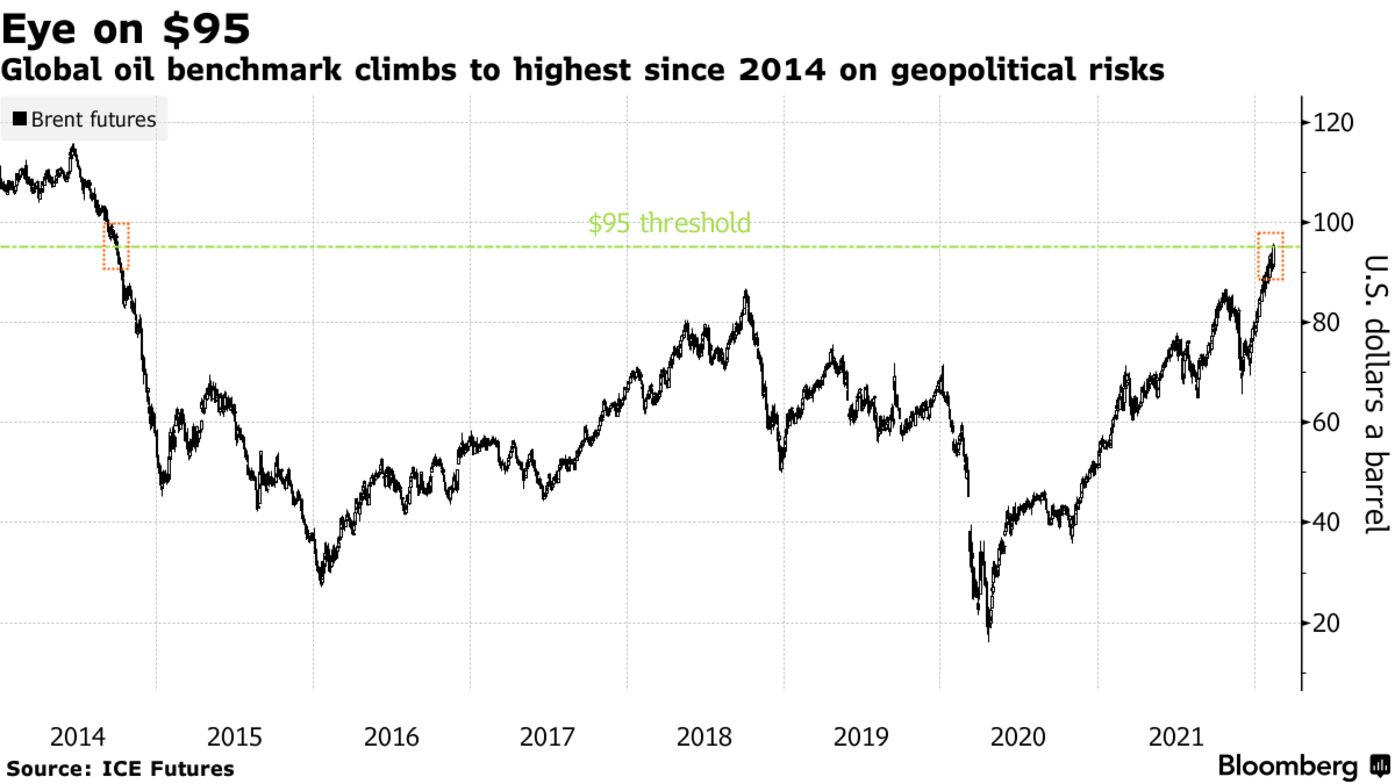Oil Surges to $95 as Ukraine Tensions Stoke Supply Concerns
- U.S. says Russia military action may come as soon as next week
- Oil rises for eighth straight week amid tight supply outlook
Oil rose for an eighth straight week as tensions between Ukraine and Russia heightened concern about tight global supplies.
The global benchmark rose 1.3% this week, touching $95 a barrel Friday before paring gains. National Security Advisor Jake Sullivan said Friday that the U.S. believes Russia could take offensive military action or attempt to spark a conflict inside Ukraine as early as next week.
A potential Russian invasion of Ukraine could not only disrupt crude supplies but also could spark retaliatory sanctions by the U.S. Oil prices have soared in recent weeks on speculation that demand will outpace supply as the global economy rebounds from the pandemic. Russia has denied it plans to invade.
“The oil market was waiting for a major catalyst to justify a move above $100 and it seems the Ukraine situation just took a turn for the worse,” said Ed Moya, Oanda’s senior market analyst for the Americas. “If Russian troop movement is confirmed over the next week, crude supply disruption expectations could send oil another 10% higher.”
OPEC said Thursday that the rebound in oil consumption could surpass its forecasts this year as economic activity improves and travel gathers pace. The OPEC+ coalition’s “chronic” struggle to revive output is also likely to support prices, unless the group’s Middle Eastern heavyweights pump more, according to the International Energy Agency.
“The oil market is incredibly tight,” Toril Bosoni, head of the IEA’s oil markets division, said in a Bloomberg Television interview on Friday. “Prices continue to surge and are now reaching levels that are uncomfortable for consumers across the world.”
Yet oil’s rally is still facing some headwinds, as officials from the U.S. to Europe have indicated that sides are closing in on a nuclear pact after talks resumed in Vienna on Tuesday.
Bank of America Corp. said its expectation that Brent will hit $120 a barrel by the middle of the year is now at risk as the Iranian nuclear negotiations proceed. The deal could tip markets into a surplus of as much as 1 million barrels a day in the second half, pushing Brent down by $10 to $15 a barrel.
“An Iran deal would be a game-changer, potentially pushing the global petroleum market into a surplus,” Bank of America analysts led by Francisco Blanch wrote in a report.
| PRICES |
|---|
|
Rising energy prices are causing concern for governments worldwide. White House Economic Adviser Jared Bernstein told CNN this week that releasing more crude reserves to tackle surging gasoline prices was an option, while the soaring cost of diesel is straining truck operators throughout Asi


Keine Kommentare:
Kommentar veröffentlichen